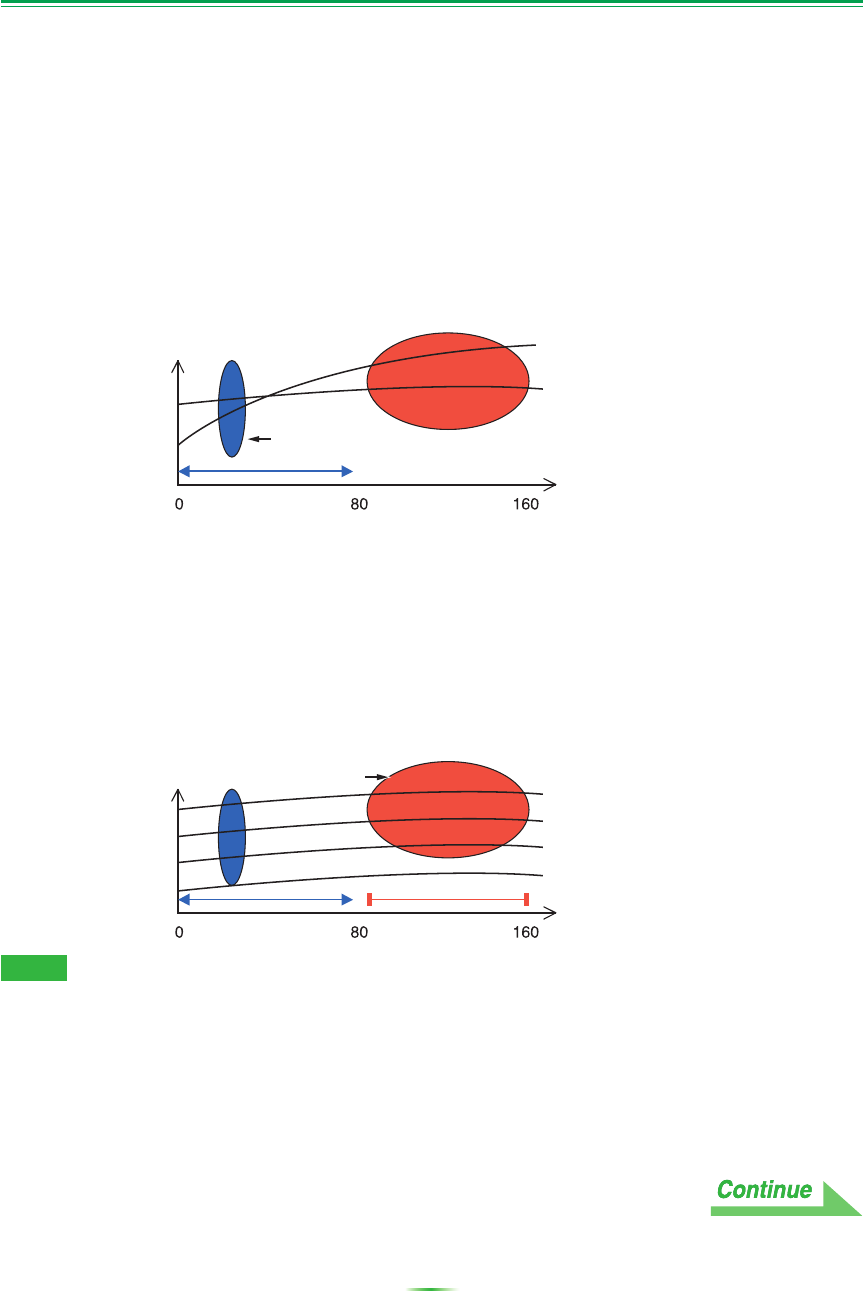
16
How to Interpret the Graphs (Continued)
Pattern 2: Different reverb characteristics for different channels
When different channels can have different reverb characteristics, as shown in Figure 3, it is not so
effective to calibrate using the standard Acoustic Cal EQ. In general, a sound field with good acoustic
positioning and movement is made up by sounds coming directly from the speakers (including initial
reflections). This is the reason why you should use a calibration method that enables you to adjust direct
sounds. In pattern-2 cases, the standard Acoustic Cal EQ is not able to adjust frequency characteristics for
sounds coming directly from the speakers. It acquires data in the 80 to 160 msec range (the red area in
Figure 3.), so its adjustment ability is limited to sounds 80 msec or longer. In cases like this, you should
use Advanced EQ Setup and set the time period to 20 to 40 msec (the blue area in Figure 3). This
allows the characteristics of direct sounds to be balanced for each channel, giving an ideal sound
field with good acoustic positioning and movement.
Figure 3
Pattern 3: Similar reverb characteristics for high and low frequencies and
all channels
As shown in Figure 4, when the reverb characteristics for all channels are similar across all frequencies,
your sound experience will probably not be adversely affected by reverberation. Instead of Advanced EQ
Setup, we recommend that you use the “Auto” setting of the standard Acoustic Cal EQ. This produces
a total calibration for both direct sounds and reverberations, resulting in an ideal sound field.
(See page 84 in the receiver’s Operating Instructions.)
Figure 4
Notes
• If you are not sure which time period to specify in Advanced EQ Setup, start by trying 20 to 40 msec. If
the graphs show an unusual reverb curve for a specific frequency, the cause may be some accidental
variation. Instead of selecting 20 to 40 msec, try another time period.
• Another good method is to try various time periods in Advanced EQ Setup and select the one which
sounds the best.
•Time period settings cannot be made on the PC. They can only be made on the on-screen display of the
receiver, using the receiver’s Advanced EQ Setup function.
Level
(dB)
Time period point
to be selected
Front left channel
Front right channel
Time (in ms)
Level
(dB)
Select the standard
Acoustic Cal EQ.
Front left low frequencies
Front right low frequencies
Front left high frequencies
Time (in ms)
Front right high frequencies


















